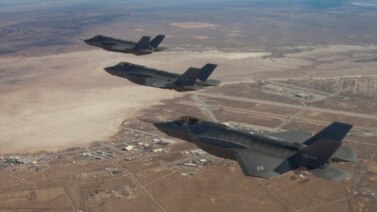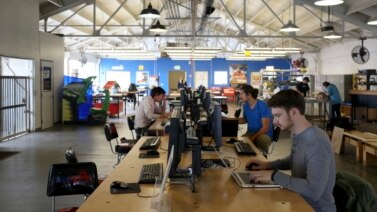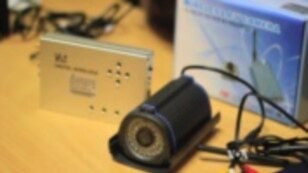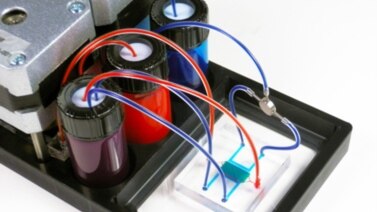Scientists have been experimenting with four-legged robots for years. They want the ability to use robots like pack animals to carry heavy loads over difficult areas of land.
But providing enough power for those kinds of robots has been a problem. Now, that has changed. Engineers at the Massachusetts Institute of Technology have designed a running robot that operates on batteries.
Scientists say their robots will soon be able to run like cheetahs, the fastest land animals on Earth.
One difficulty in designing these types of robots continues to be providing power to operate them. These complex machines are still relatively heavy. And their motors require a lot of energy to run.
The most powerful of these machines must be connected to an external power source. Others are run by gasoline placed in a container on the machine itself.
But engineers at the Massachusetts Institute of Technology, or MIT, have designed a cheetah-like robot that is light enough to run on batteries. The robot weighs just 30 kilograms.
Sangbae Kim is the director of the MIT Biomimetics Robotic Lab. He says the robot needs only about 700 watts of power to operate.
“This robot can actually jump 40 centimeters high and it can land very safely and then it can run, sprint, because of the special motor technology we developed.”
The robot’s limbs and other parts were made in a three dimensional-- or 3-D—printer. A strong, light-weight plastic material called Kevlar is used to make the robot parts stronger. Kevlar is used for modern military helmets and protective body clothing.
“The frame has to be very light and very stiff, so we designed this frame to handle these high forces and the high shock.”
Mr. Kim says another special feature is the motor controller. His team at MIT designed it themselves, he says, because no other available products could handle the robot’s power requirements.
But the development of MIT's robot is not without its own set of problems. The robot’s limbs must support a great amount of force, and sometimes they break.
Researchers say the new technologies used on this robot may be used in the making of artificial limbs and other machines. Some of those machines may help save humans from performing difficult and dangerous jobs.
I’m Jonathan Evans.
George Putic reported this story from Washington. Jonathan Evans wrote it for Learning English. Ashley Thompson was the editor.
Words in This Story
motor – n. a machine that produces motion or power for doing work
limb – n. a leg or arm
pack animal - n. an animal (such as a horse or donkey) that is used for carrying packs
shock – n. a violent shake





